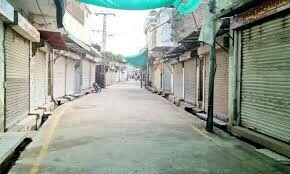KARACHI: The recently announced energy conservation measures may turn into an occupational nightmare for thousands of riders engaged in the food and grocery delivery business nationwide.
The National Energy Efficiency and Conservation Plan envisages the closure of commercial markets by 8:30pm every evening. Riders say their incomes will nosedive if the cut-off is applied to the food delivery business as well.
“I’m frightened. Fewer rides a day will mean no bonus. My expenses are already mounting. No way I can manage with a cut in income,” said Hassan Shaikh, a food-delivery rider, while speaking to Dawn on Wednesday.
By bonus, he means the extra Rs3,800 he gets for delivering 140 orders from Monday through Thursday. The additional payment for completing 135 trips on busier Friday, Saturday and Sunday is Rs4,500.
The bonus can add up to more than Rs33,000 to an efficient rider’s usual take-home income every month — an amount that Mr Shaikh says is central to his financial well-being.
“I use my bonus to make monthly BC payments,” he said while referring to the informal collective saving schemes alternatively called committees.
Speaking to Dawn, Foodpanda Pakistan Managing Director Munteqa Peracha said roughly 40 per cent of all daily food delivery rides take place after 8:30pm. He claims his company operates the single largest fleet of riders within the food (and grocery) delivery segment consisting of 20,000 people across the country.
According to his estimate, an equal number of riders work for a dozen or so major nationwide food chains as well. After accounting for the riders who deliver for second- and third-tier food outlets, the total count may exceed 60,000 people.
“A significant number of our riders work at night only. These are either students or people with regular day jobs,” he said.
The single-minded focus on curtailing energy use by the commercial sector appears misplaced anyway. The share of commercial sector, which includes the restaurant business, was only 6.9pc in the total electricity consumption in 2021-22, according to the National Electric Power Regulatory Authority.
The largest chunk of electricity is consumed by the domestic sector (45.2pc) followed by the industrial (25.4pc) and agriculture (8.2pc) users.
“The heaviest use of electricity within the restaurant business is in chillers and fridges, which stay switched on all the time. That’s because a lot of edible material is temperature-controlled. There’s no point in shutting down productive economic activity when it doesn’t serve the stated purpose of energy conservation,” he said.
Published in Dawn, January 5th, 2023















































